Onco Radiology is a specialized branch of radiology dedicated to employing advanced imaging techniques such as X-ray, CT scan, MRI, Ultrasound, and PET scan for the accurate diagnosis and treatment of cancer. Radiologists in this field play a pivotal role in collaborating closely with oncologists to comprehensively detect, stage, and monitor cancer. Their expertise extends beyond diagnosis to guiding radiation therapy, ensuring a holistic approach to cancer care.
These skilled professionals utilize cutting-edge technology to provide precise insights into the nature and progression of tumors, facilitating informed treatment decisions.
Contact Us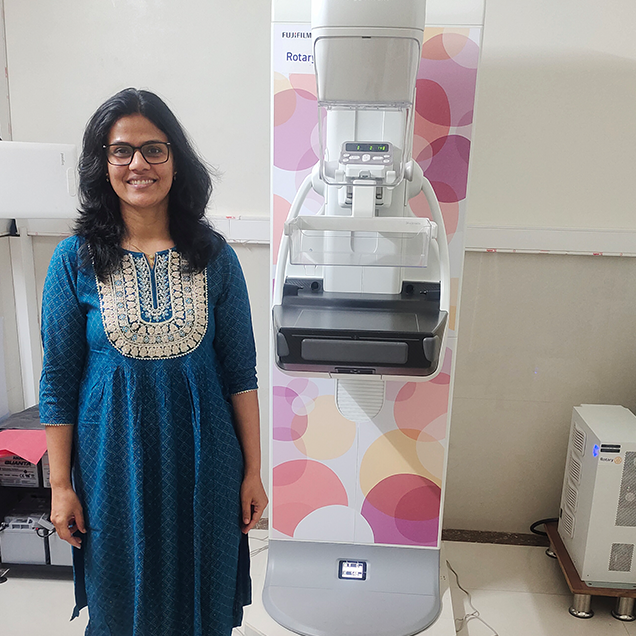
of Dedication and Excellence: Celebrating a Milestone in Service
Radio-Oncology encompasses diverse imaging modalities, including X-rays, CT scans, MRI, ultrasound, and PET scans. These techniques offer detailed insights into the internal structures and functions of the body, aiding in the diagnosis and treatment of various medical conditions.

At Rajkot Cancer Hospital, we recognize the paramount importance of early cancer detection for successful treatment outcomes. Leveraging advanced imaging technology, our facility conducts detailed scan analyses, going beyond technical jargon to deliver personalized narratives in our reports. We meticulously integrate your medical history with imaging findings, crafting a clear roadmap for your doctors. Our unwavering commitment is to provide comprehensive and individualized care, ensuring that each patient receives the attention and support needed throughout their cancer journey.

Our diagnostic services include a range of biopsy procedures tailored to specific areas of concern. CT-guided biopsies are adeptly performed for small, deep-seated lung tumors, extending to cover mediastinal, retroperitoneal, pancreatic, and adrenal tumors. USG-guided biopsies play a crucial role in the evaluation of breast, thyroid, liver, and ovarian tumors, while USG-guided aspirations and pigtail cancer insertions are conducted as needed. For precise diagnosis, transrectal ultrasound guides prostatic biopsies, and transvaginal ultrasound aids in biopsies for female pelvic masses. In the realm of breast health, USG-guided hook wire localization and marker placement are performed for breast masses. Additionally, our facility offers radiofrequency ablation for liver tumors, ensuring a comprehensive approach to diagnosis and treatment for our patients.

Our comprehensive screening services cater to various aspects of health. For breast screening, we employ digital mammography and sonography to ensure a thorough examination. Lung screening involves the use of low-dose CT scans for a comprehensive evaluation, providing detailed insights into pulmonary health. Prostate screening utilizes both abdominal and transrectal ultrasound techniques, allowing for a precise assessment of prostate health. In gynecological screening, we utilize transabdominal and transvaginal ultrasounds, ensuring a comprehensive and detailed assessment of reproductive health. These screening modalities contribute to our commitment to preventive healthcare, offering patients a proactive approach to their well-being.
- Procedure: Digital X-ray for various body parts, commonly including chest, abdomen, KUB (Kidneys, Ureters, Bladder), spine, bones, and joints.
- Machine: Wipro GE 300 maS.
- Duration: 10-20 minutes per session.
- Appointment: Not required; walk-ins are welcome.
- Report Delivery: Same day.
- Preparations: Usually not required unless specified by the referring doctor.
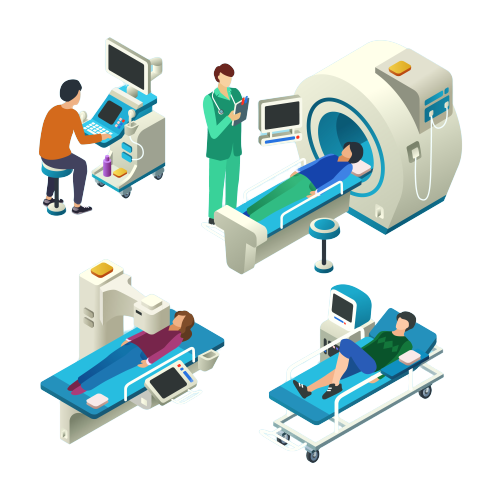
- Barium Study: Barium studies, conducted per oral and per rectal as directed by the referring doctor, are essential for evaluating various segments of the gastrointestinal tract. This diagnostic procedure involves the administration of barium to provide detailed insights into the anatomy and functioning of the gastrointestinal system.
- Gastrografin Study: Conducted for postoperative patients.
- Other Diagnostic Procedures: IV urography, retrograde urethrogram, micturating cystourethrogram, sialogram.
- Machine: Wipro GE 300 maS.
- Appointment: Required.
- Report Delivery: Same day.
- Preparation Details: Detailed abdominal preparation needed for barium enema, follow-through, and enteroclysis, explained during the appointment scheduling.
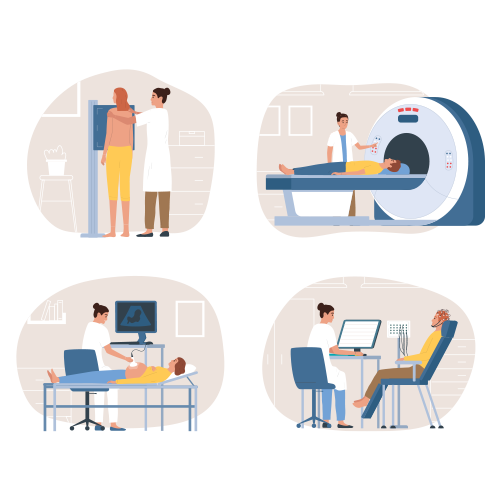
- Procedure: Digital mammography with orthogonal radiographs of the breast for internal abnormality assessment in the breast parenchyma.
- Machine: Fujifilm Amulet.
- Duration: 30 minutes per session.
- Appointment: Required.
- Report Delivery: Same day.
- Preparations: Avoid applying talcum powder or deodorant on the breasts or in the armpits before the procedure.
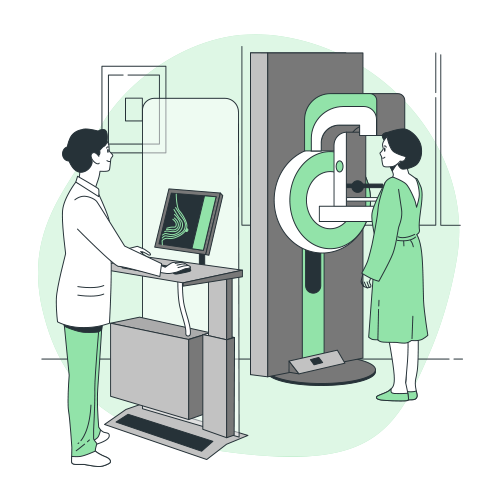
- Machine: Mindray DC 80 x expert.
- Duration: 20-30 minutes per session.
- Appointment: Required.
- Report Delivery: Same day.
- Preparations:
- Female pelvis: Full-bladder required.
- Upper abdomen: At least six hours fasting is necessary.
- Small parts (thyroid, scrotum, breasts, joints, and bones): No specific preparation required.
- Call to confirm preparation requirements.
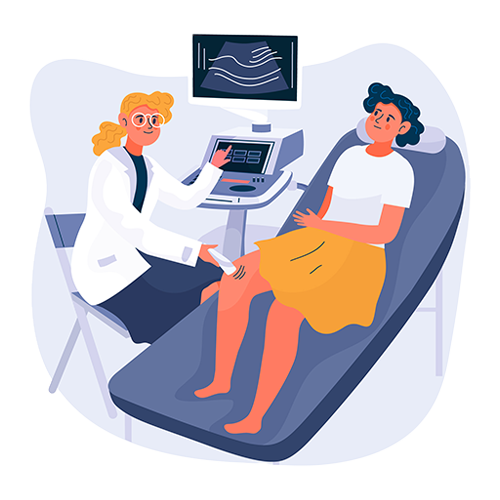
- Machine: Siemens Somatom 16 slice.
- Time Taken: 20-40 minutes.
- Appointment: Required.
- Report: Given on the same day if the study is done before noon, and next day if done post noon.
- Preparations: A minimum of four hours fasting is necessary for most CT scan procedures. Specific instructions, especially for diabetic patients, should be confirmed by calling ahead.
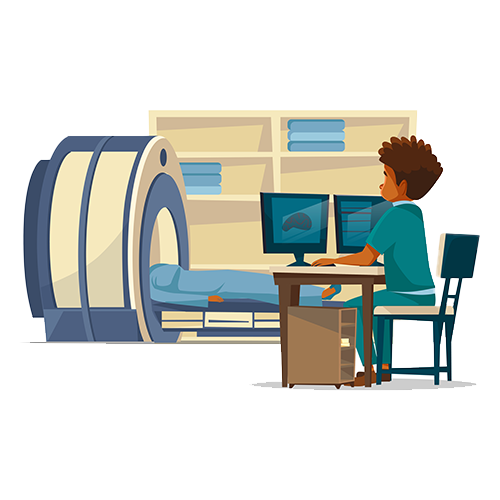
- Machine: 1.5 Tesla Siemens Sempra.
- Time Taken: 30-60 minutes.
- Appointment: Required.
- Report: Given the next day.
- Preparations: Generally none, except for MRCP (Magnetic Resonance Cholangiopancreatography), where 4 hours of fasting is required.
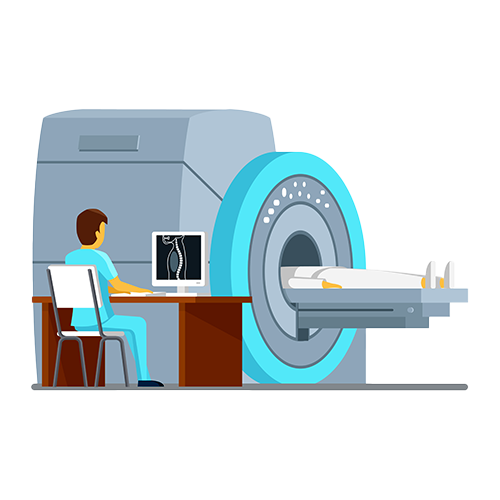
We ensure that medical information is communicated in an understandable and empathetic manner, addressing the patient’s concerns and questions. We also provide educational materials and resources that explain the radiation therapy process, potential side effects, and ways to manage them. This empowers patients to actively participate in their care.
Tailored treatment plans based on the patient’s specific diagnosis, medical history, and personal preferences.Patients are involve edit the decision-making process, discussing available treatment options, potential benefits, and risks.
We offer access to counselors who specialize in helping cancer patients cope with the emotional challenges associated with diagnosis and treatment. We are in plan to start support group sessions where patients can connect with others facing similar challenges, fostering a sense of community and understanding.
We have specialised pain management plan to address any discomfort or pain associated with radiation therapy. Regularly monitor patients for any treatment-related side effects and proactively manage them to enhance their overall well-being.
We do seamless coordination between the Radiation Oncology Department and other medical specialties involved in the patient’s care, such as surgery or medical oncology. We give proper plan for long-term follow-up care, including regular check-ups and screenings, to monitor the patient’s progress and address any new concerns.
Respect cultural, religious, and personal preferences of the patient, ensuring that their beliefs are integrated into their care plan. We safeguard patient privacy and confidentiality at all times, creating a safe and respectful environment.
We encourage patients to provide feedback about their experiences, and use this feedback to continuously improve the quality of care and services. We are engaged in quality improvement initiatives to enhance the overall patient experience and outcomes.
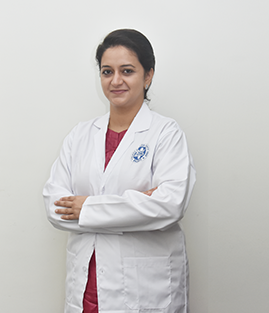
Dr. Khyati Vasavada
Medical Director / Surgical Oncologist

Dr. Nisha Ghodasara
Dept. of Onco-Radiology

Dr. Divya Singh
Dept. of Onco-Radiology

Dr. Khyati Babaria
Dept. of Onco-Pathology
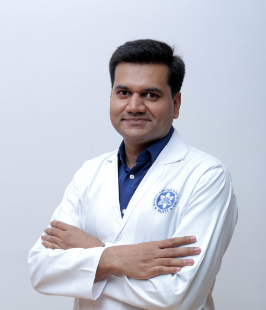
Dr. Rakesh Dhadhal
Dept. of Onco-Pathology

Dr. Pooja Tanna
Dept. of Medical Oncology

Dr. Aditi Thanky
Dept. of Medical Oncology
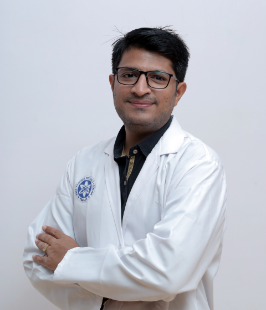
Dr. Nirav Sirja
Dept. of Anesthesiology
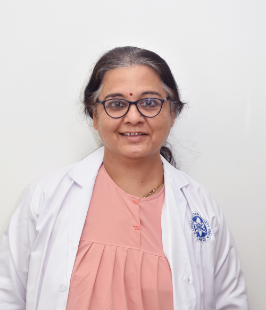
Dr. Heena Ashar
Dept. of Anesthesiology
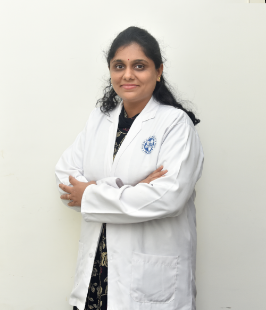
Dr. Chandani shah
Dept. of Radiation Oncology

Dr. Debadipti Pradhan
Dept. of Radiation Oncology
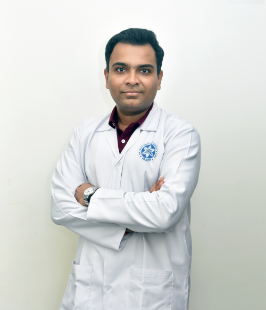
Dr. Nishant Madhani
Dept. of Radiation Oncology
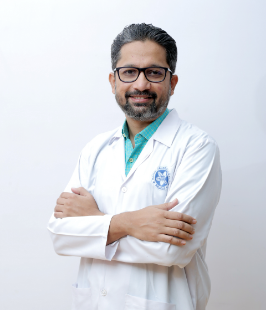
Dr. Shreyas Dholaria
Surgical Oncology
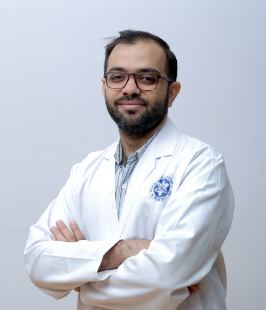
Dr. Harsh Thanky
Surgical Oncology
